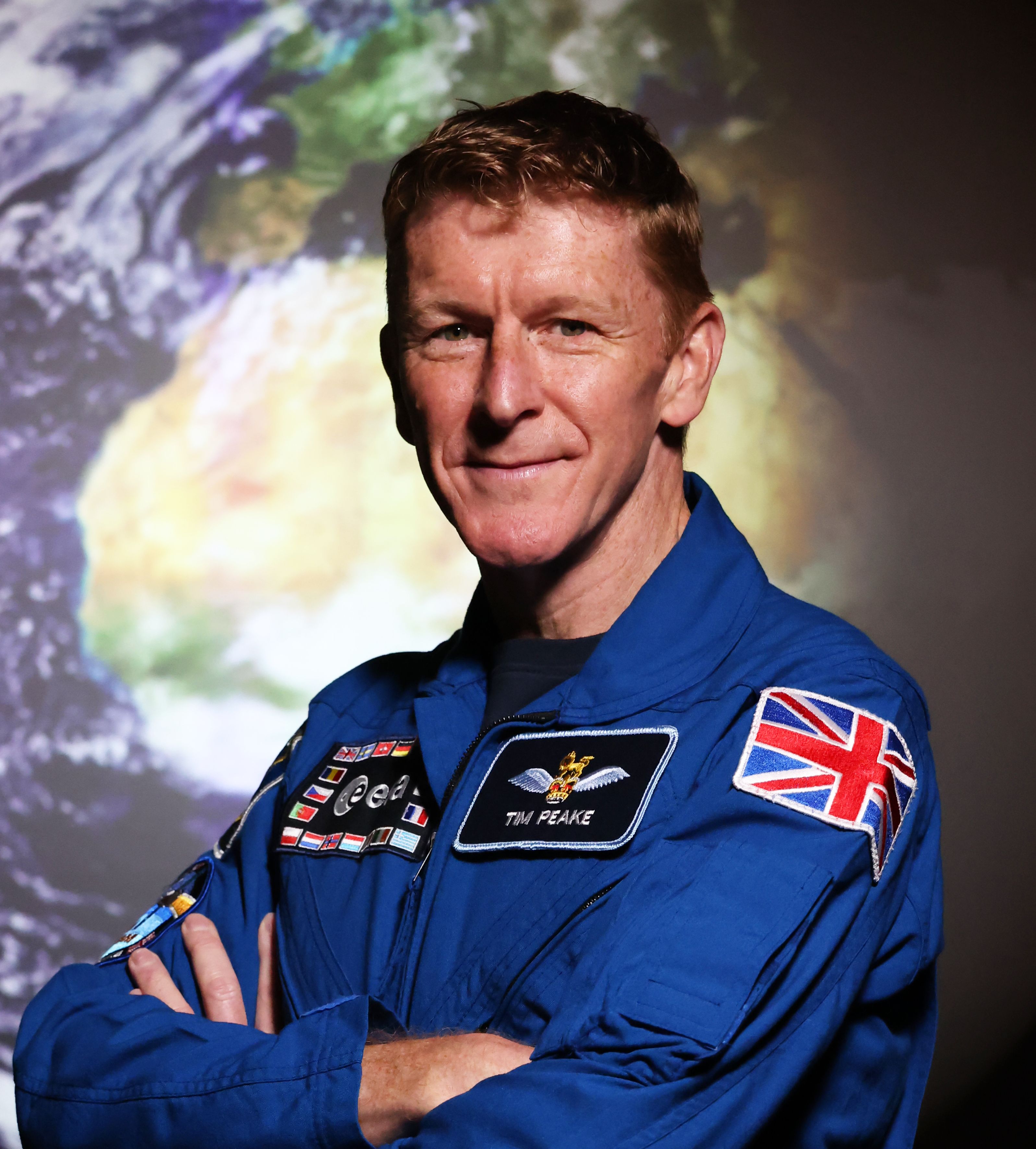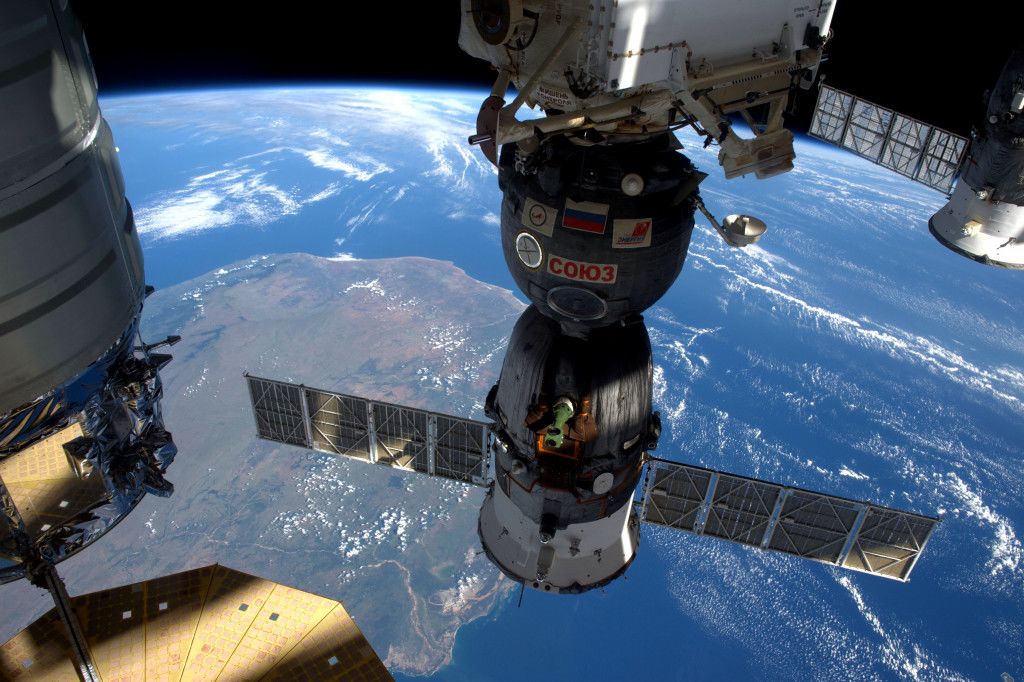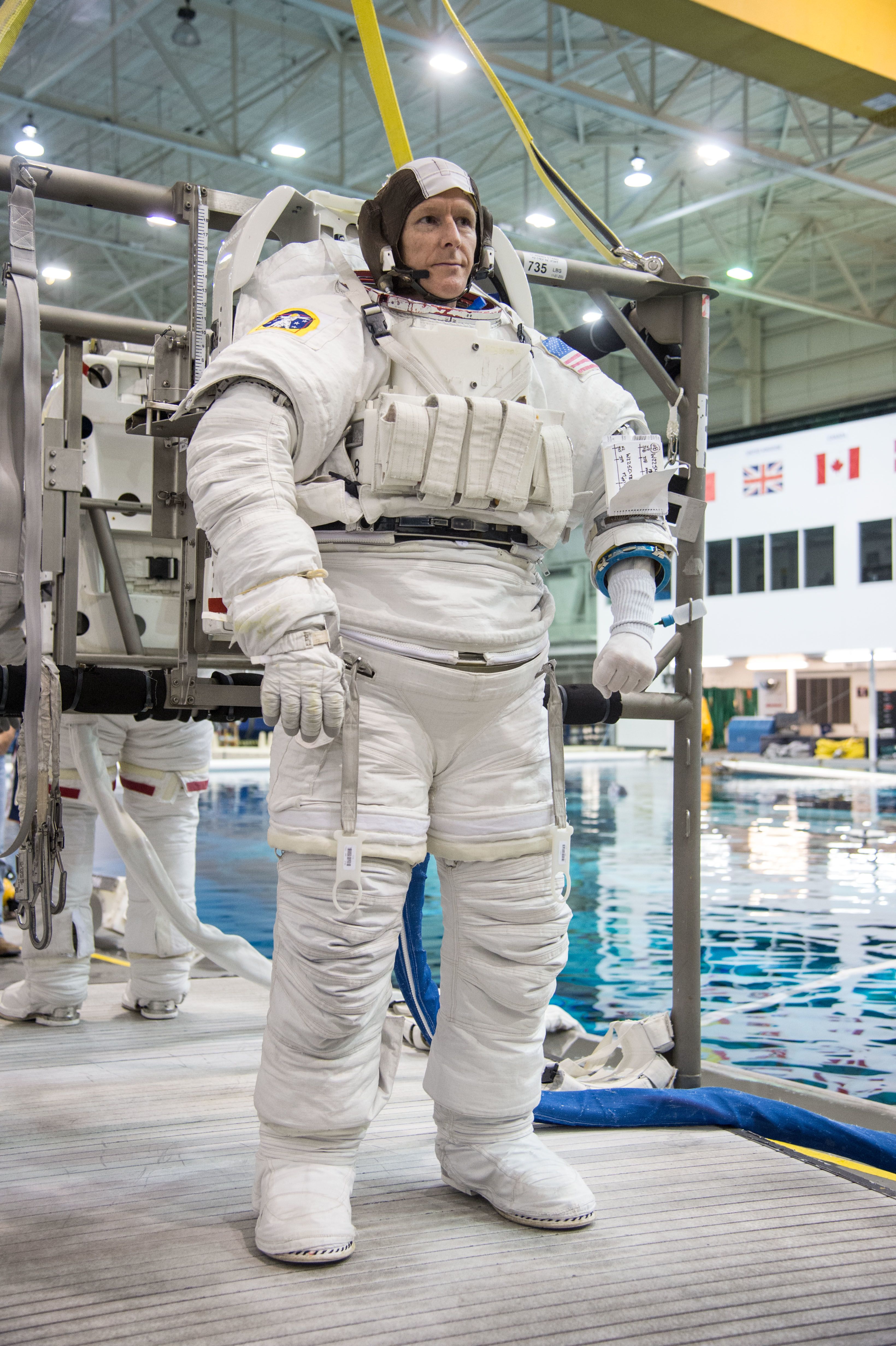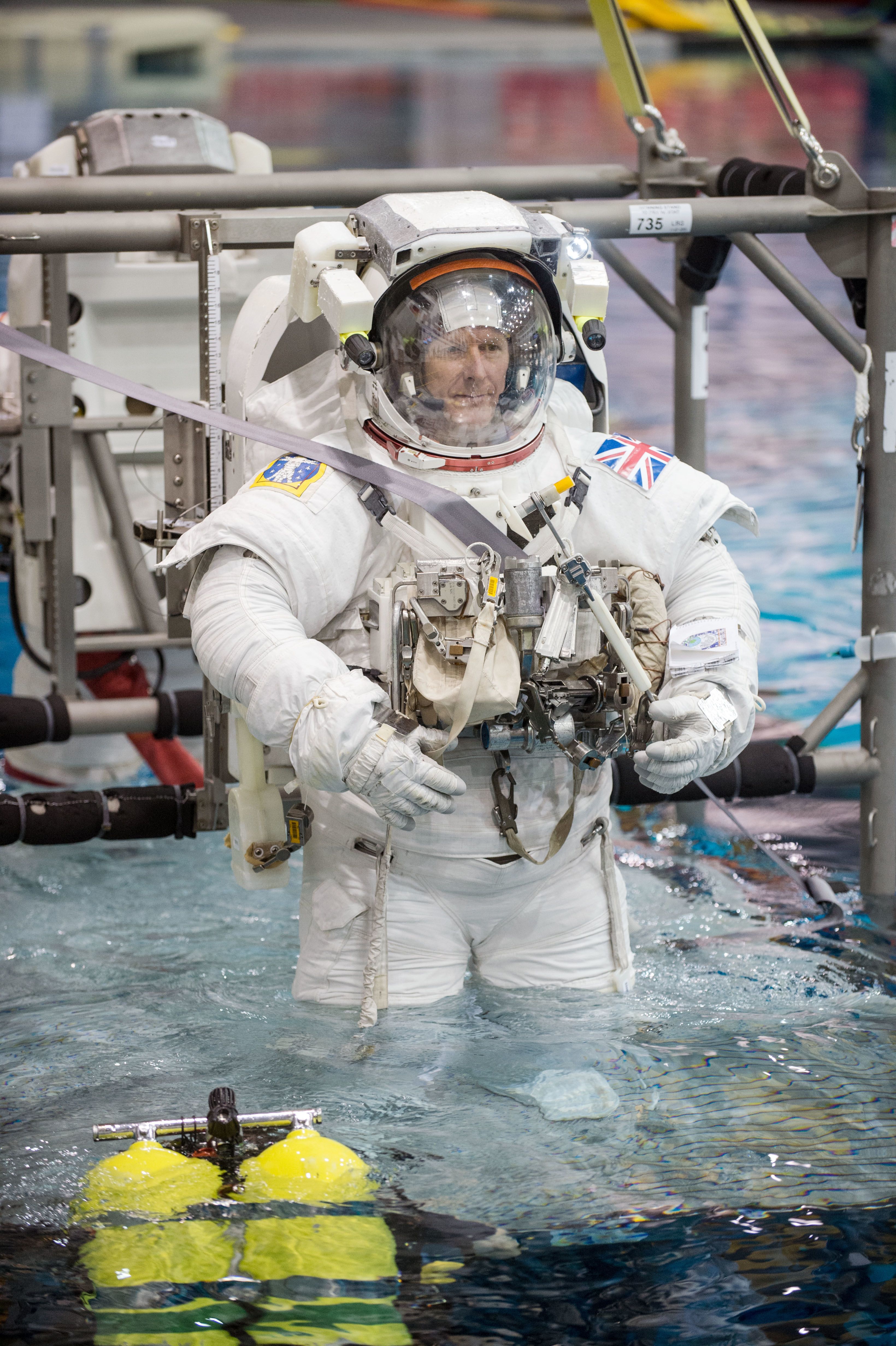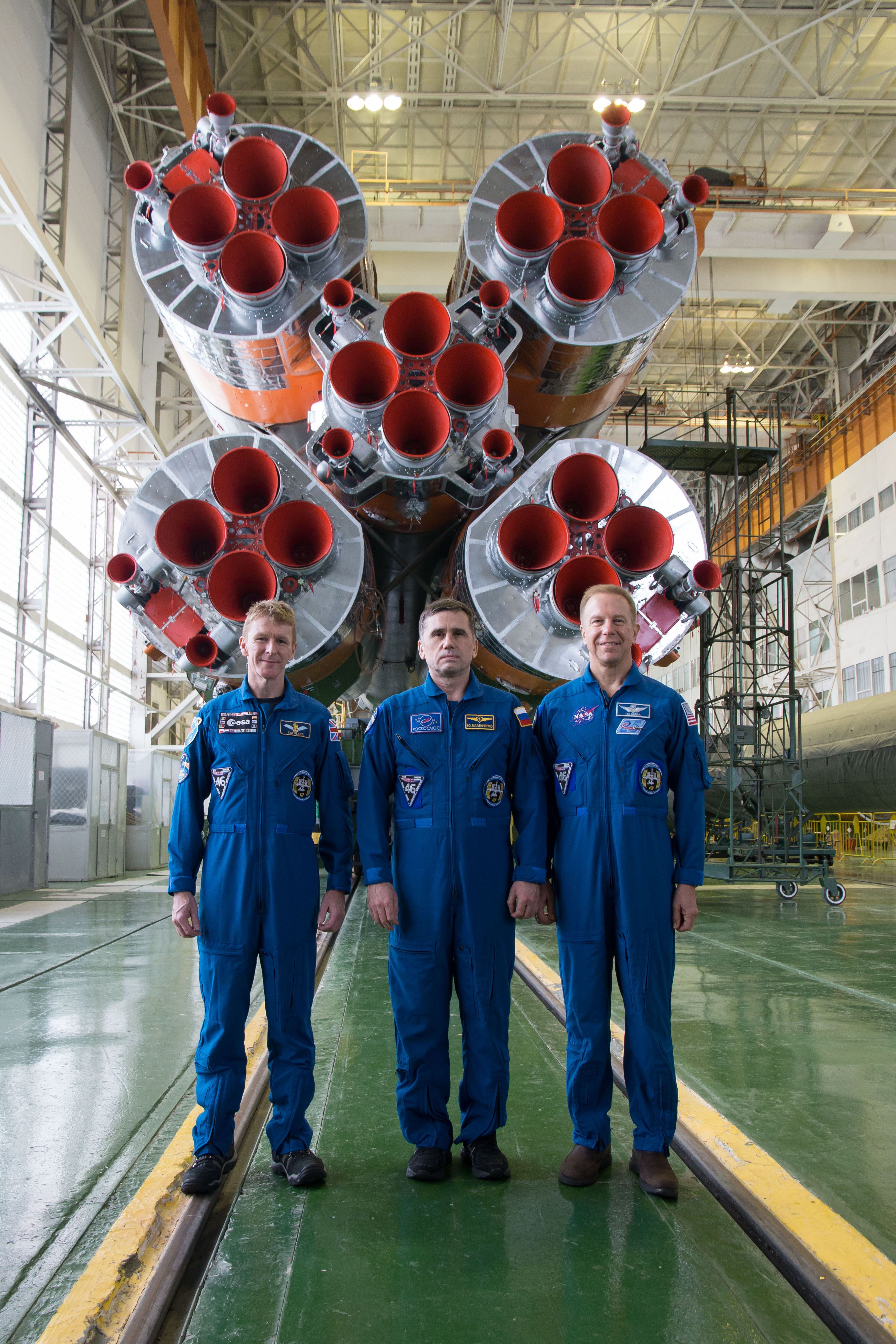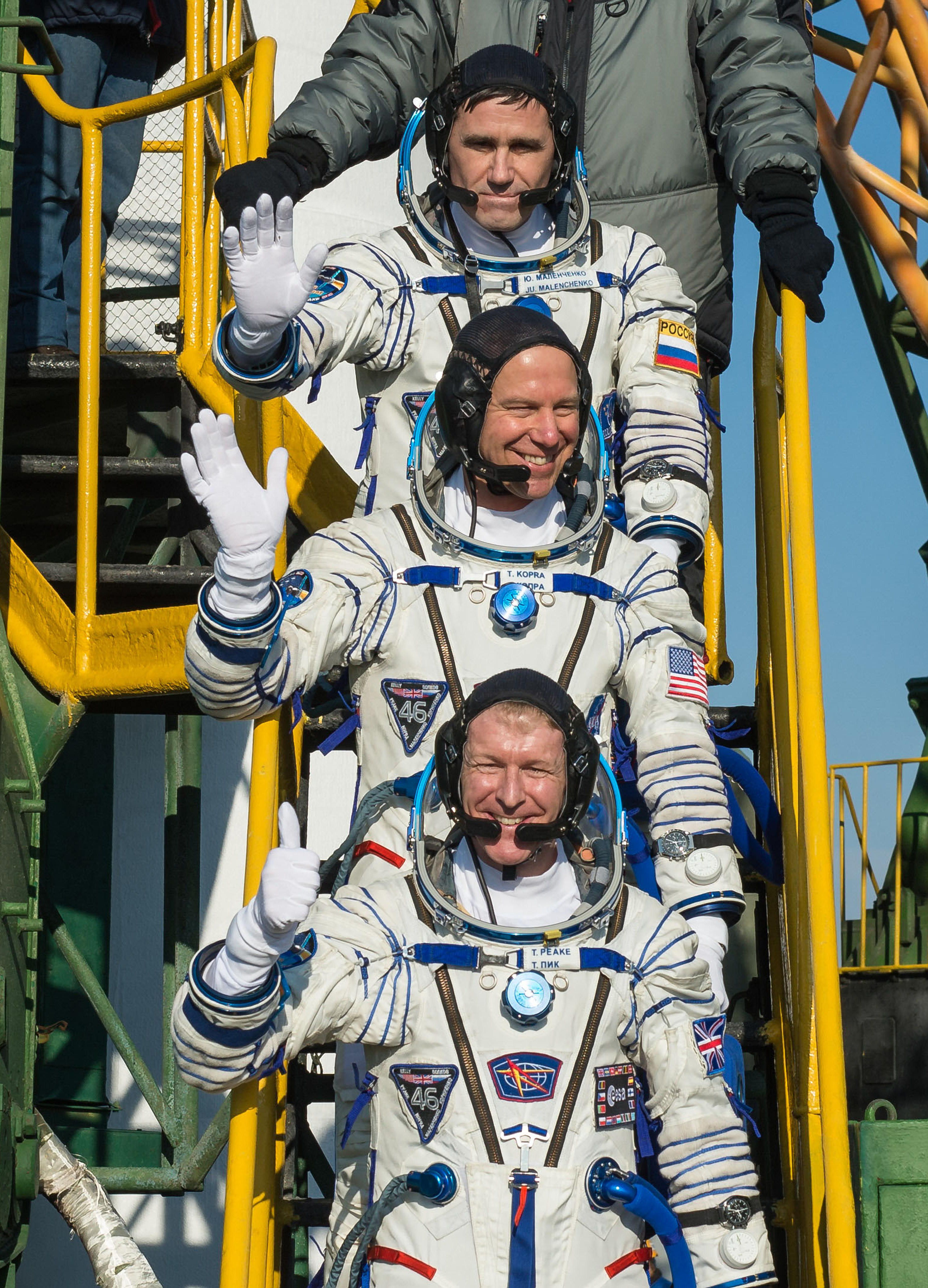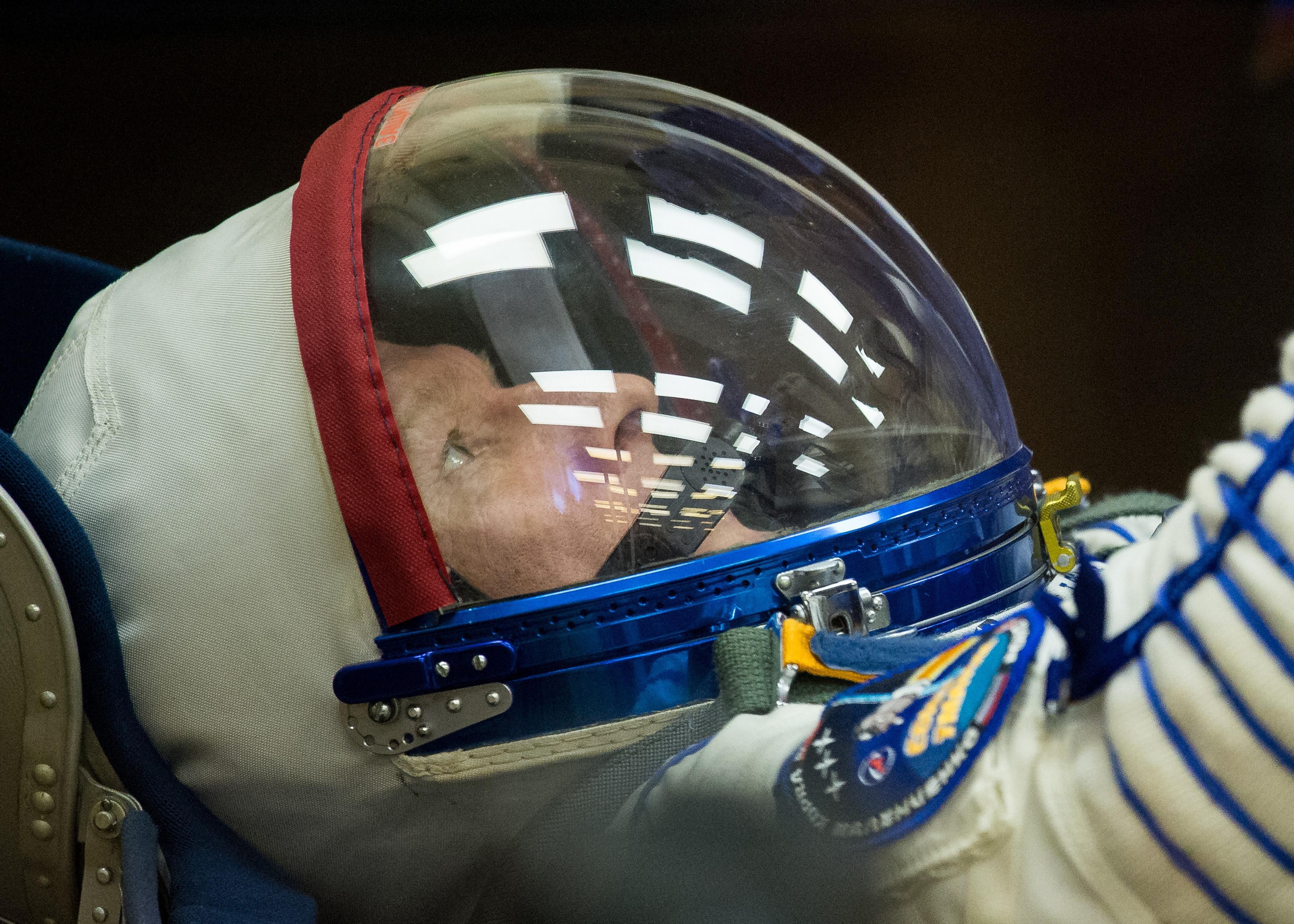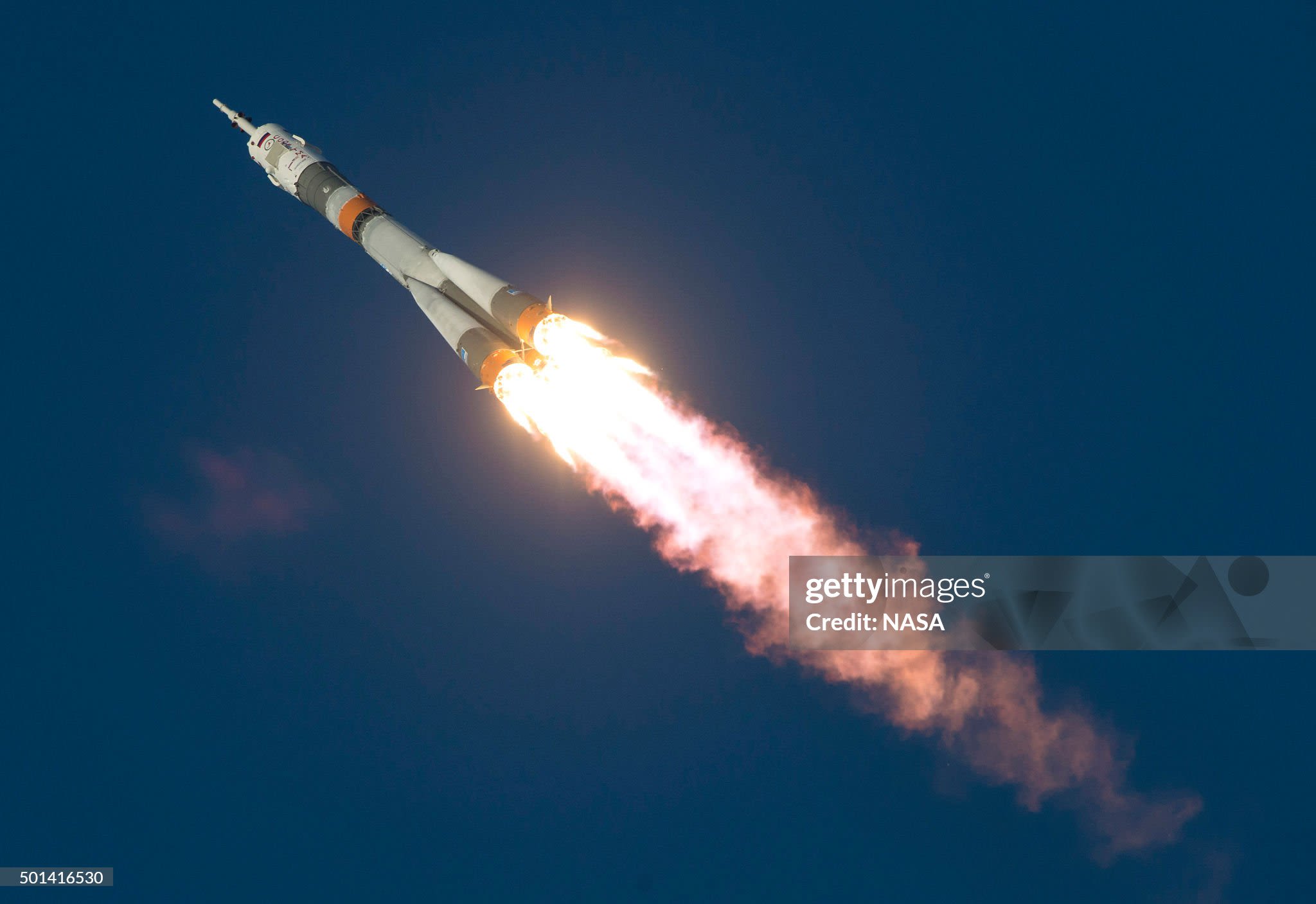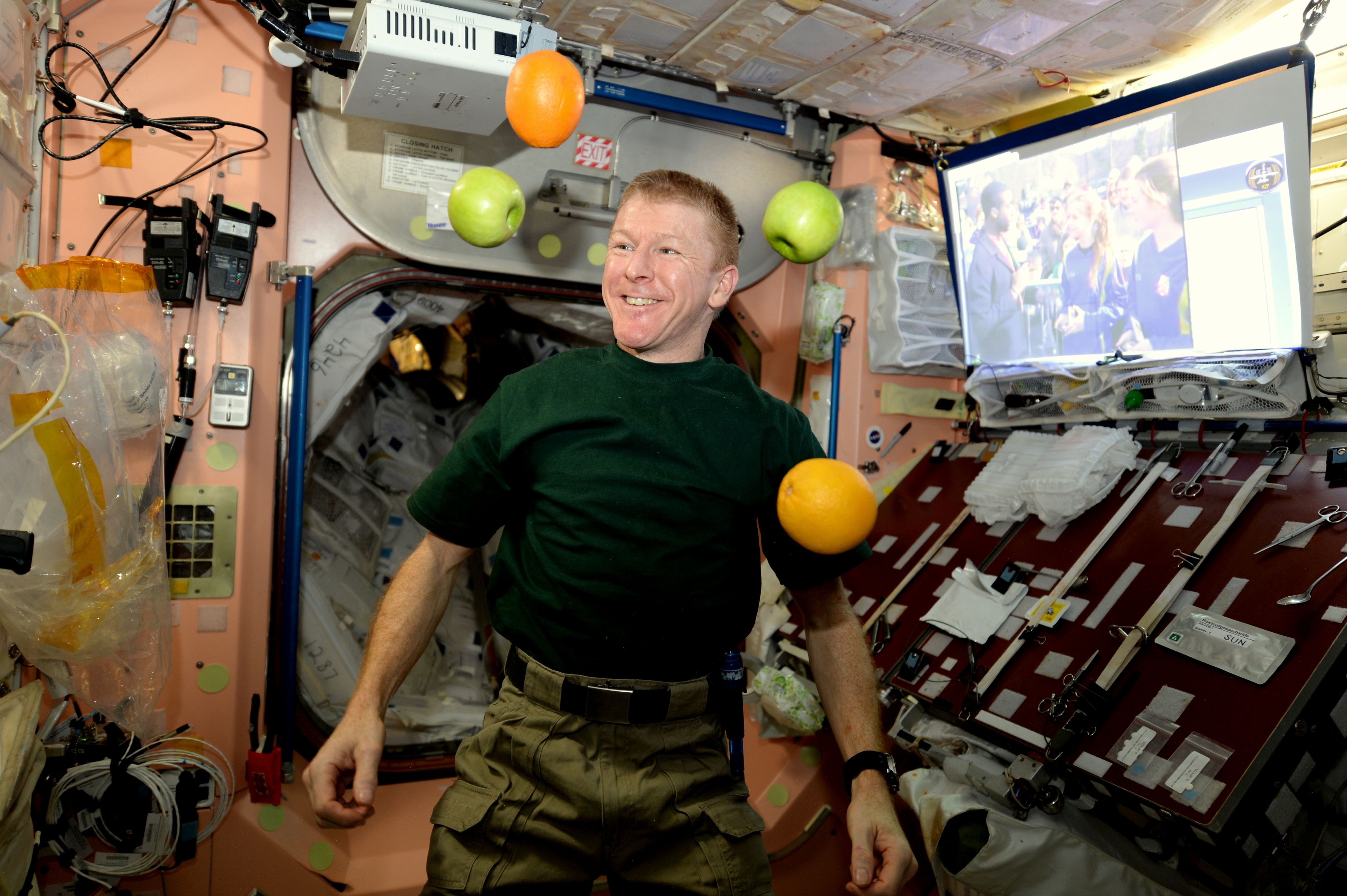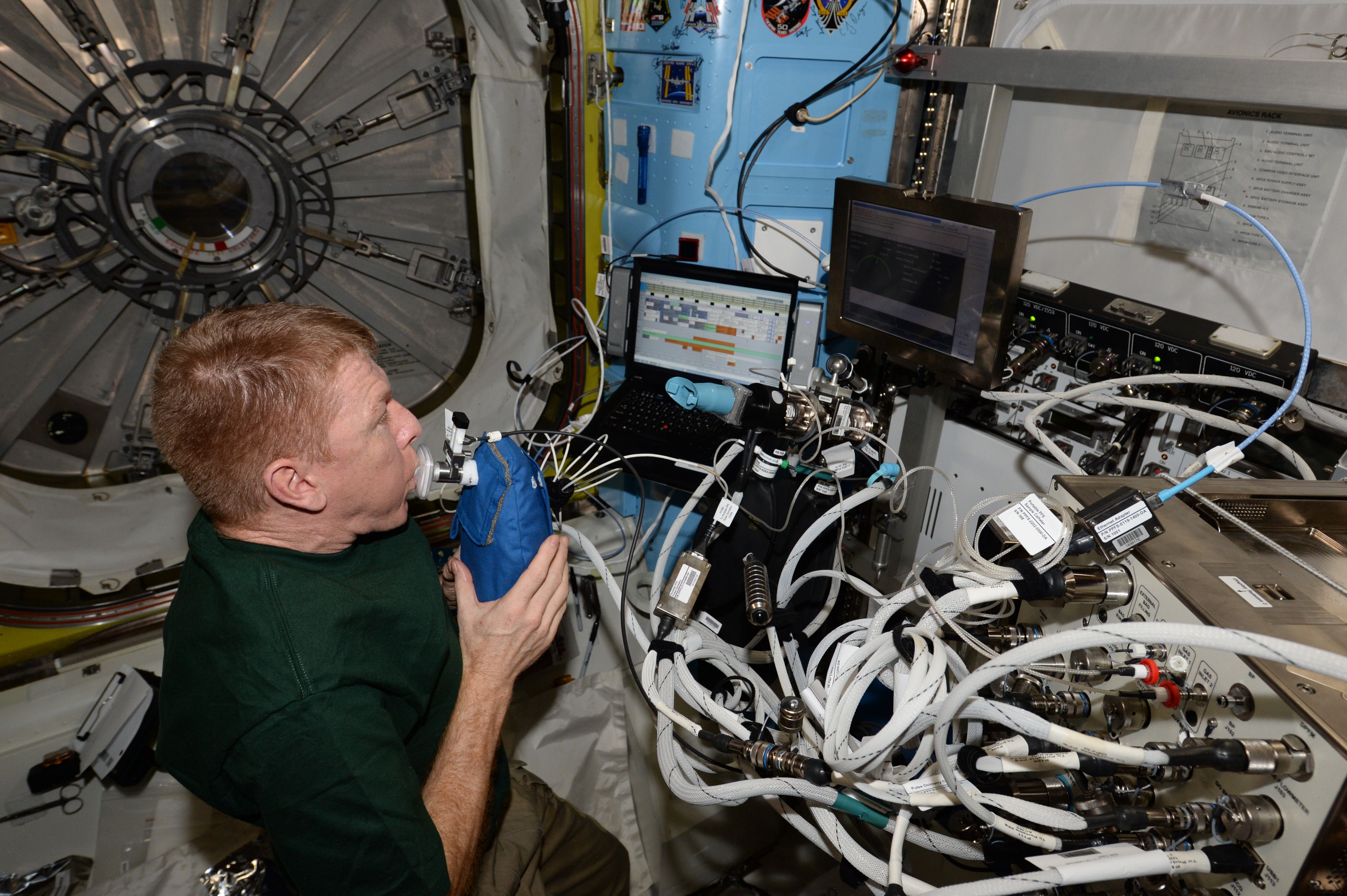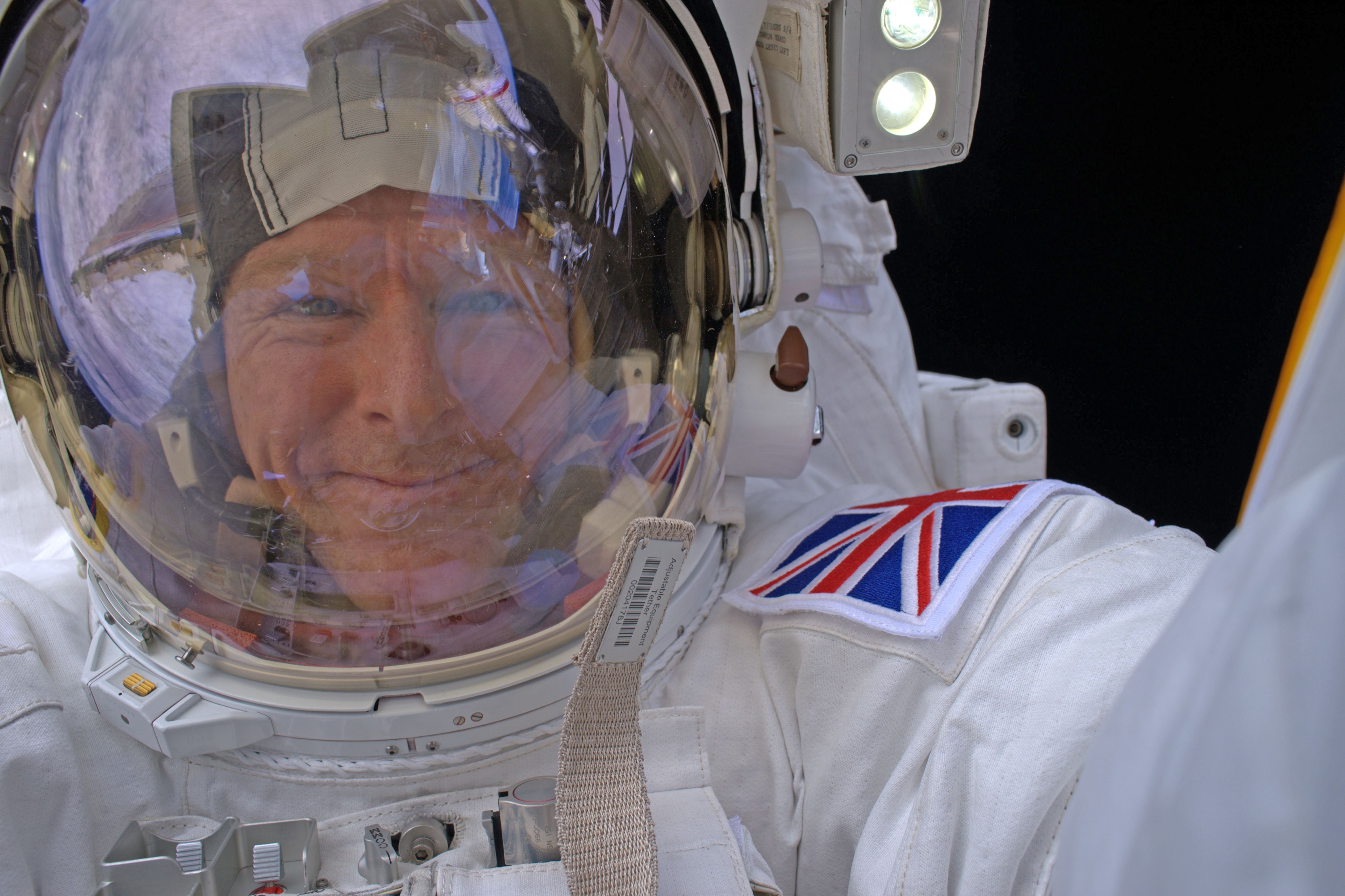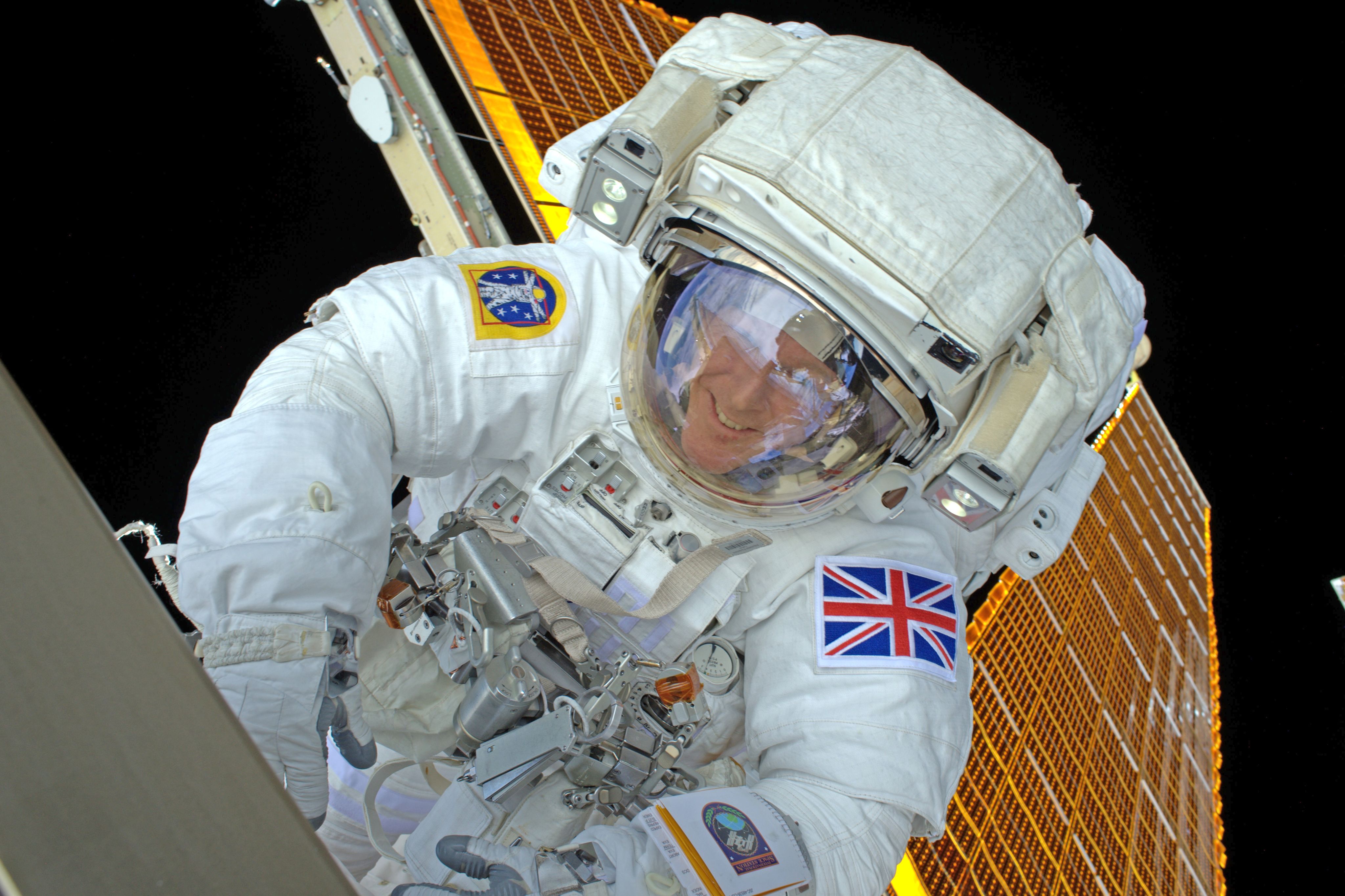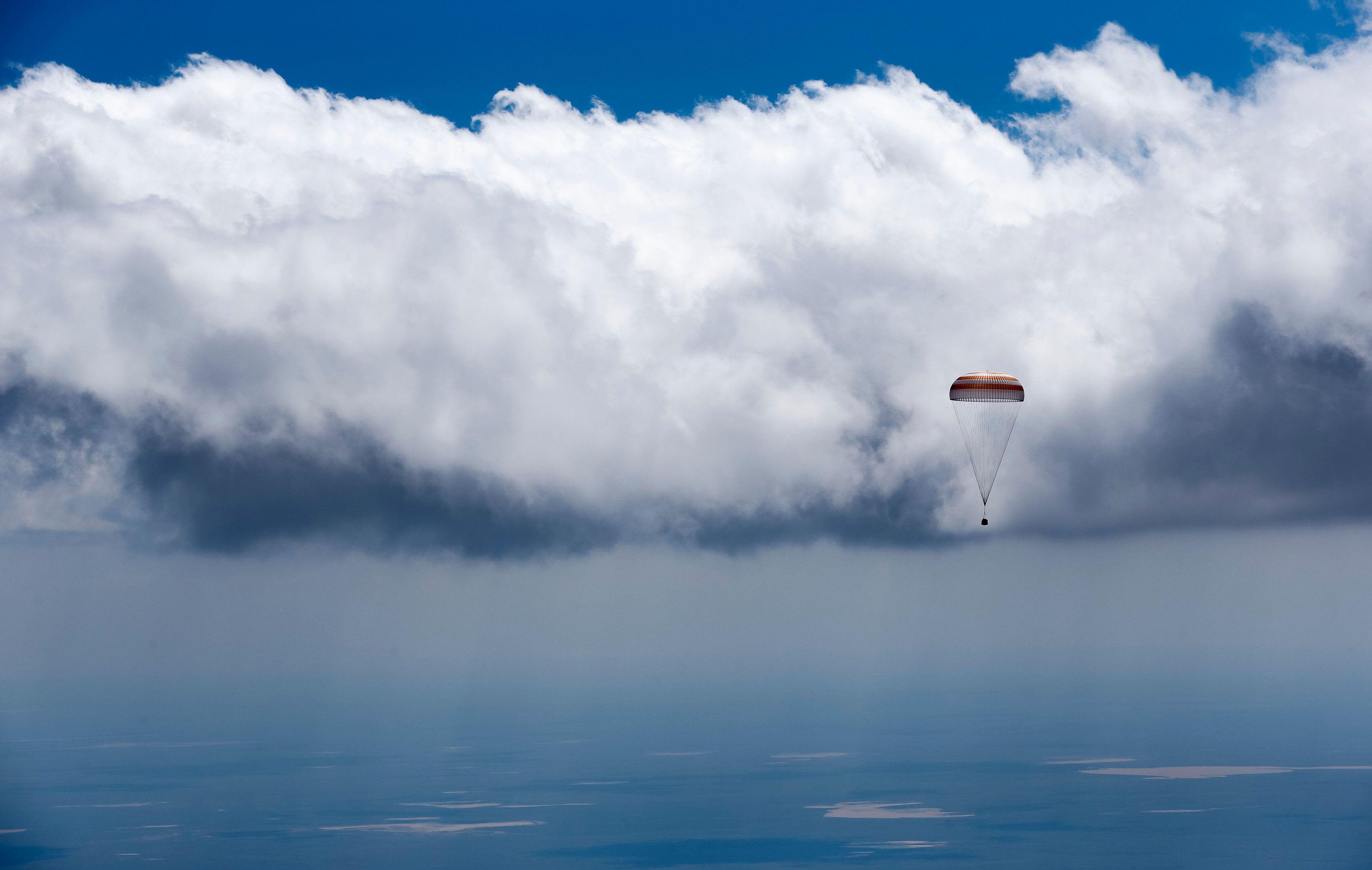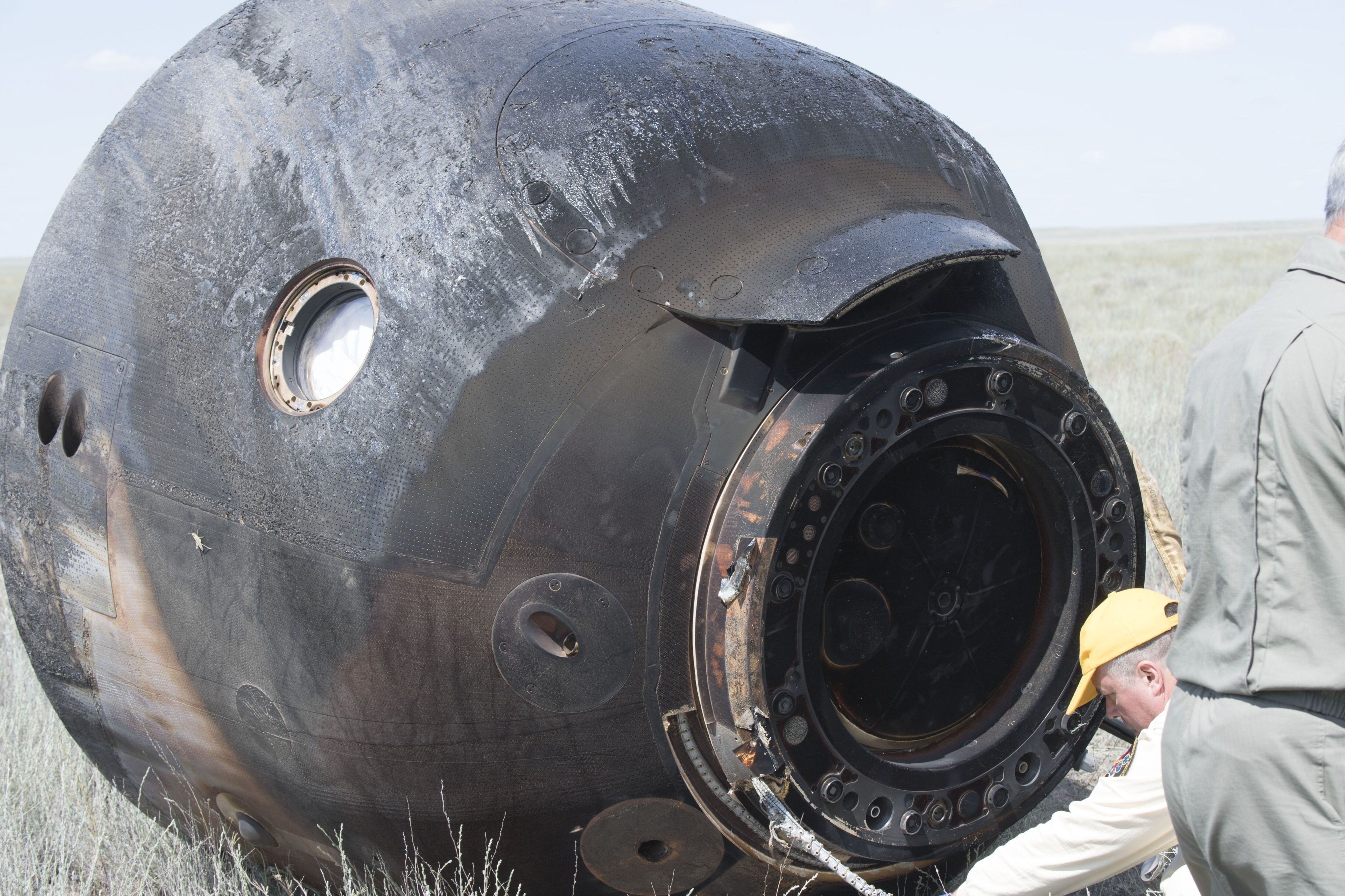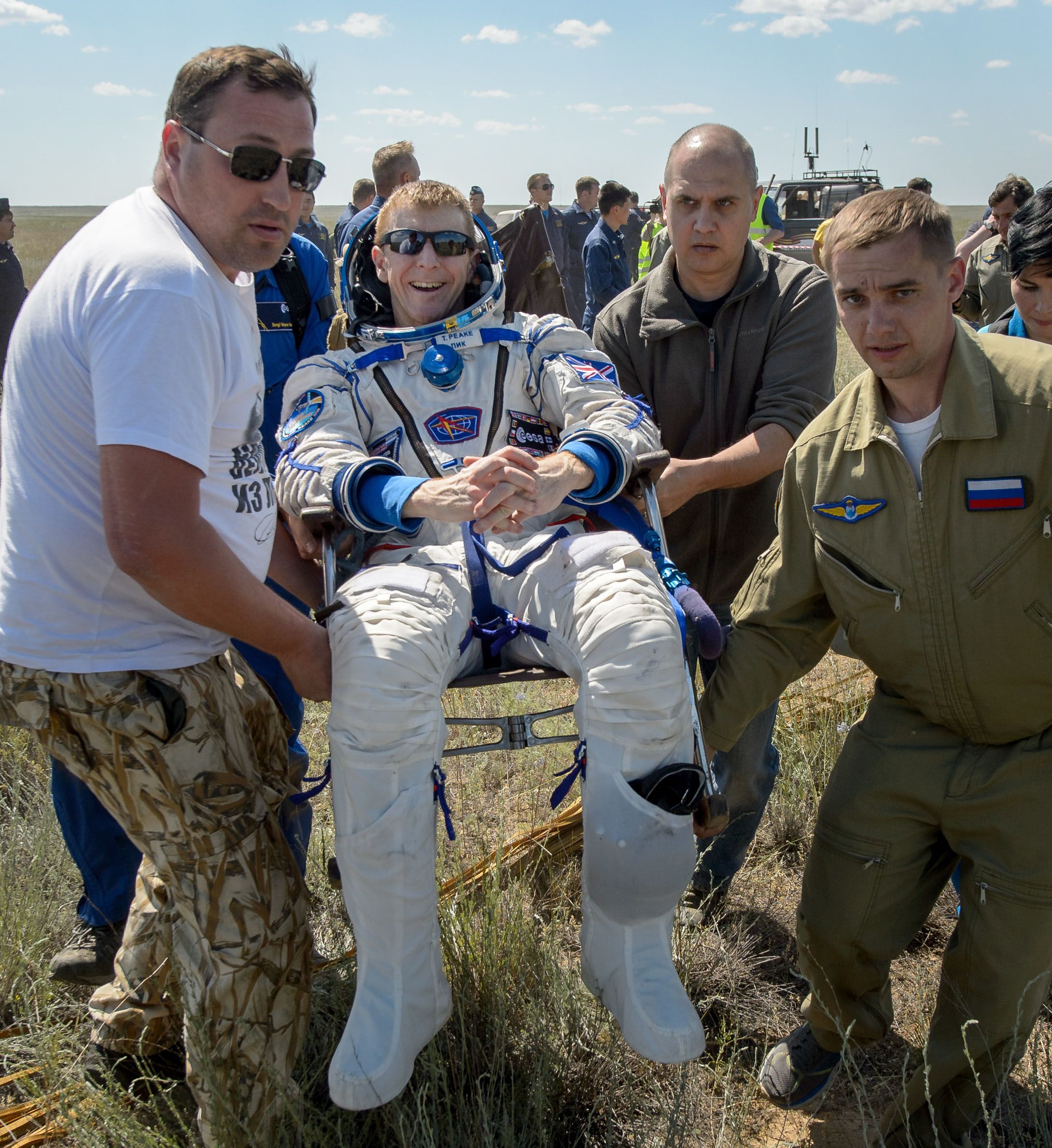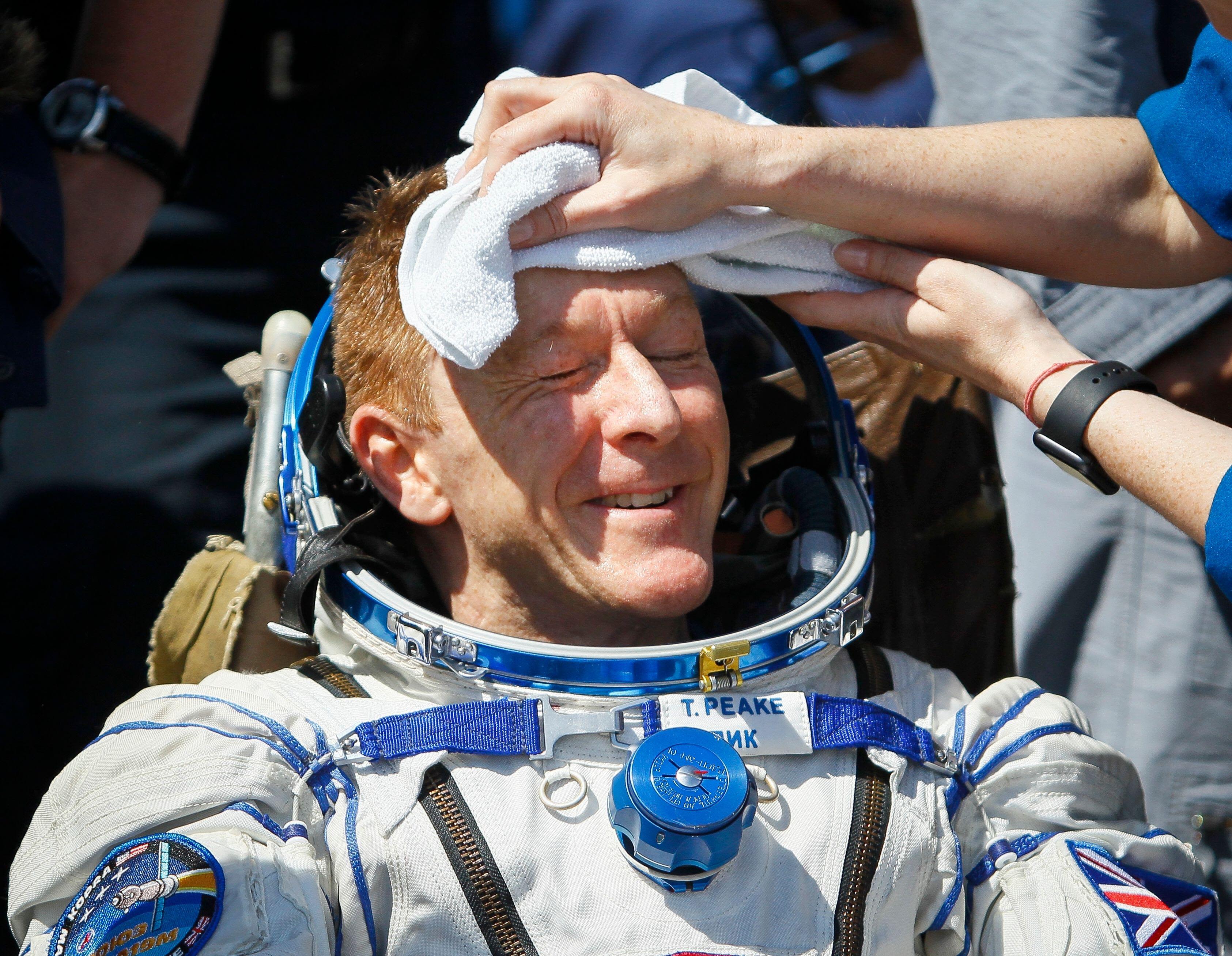FLY ME
TO THE MOON
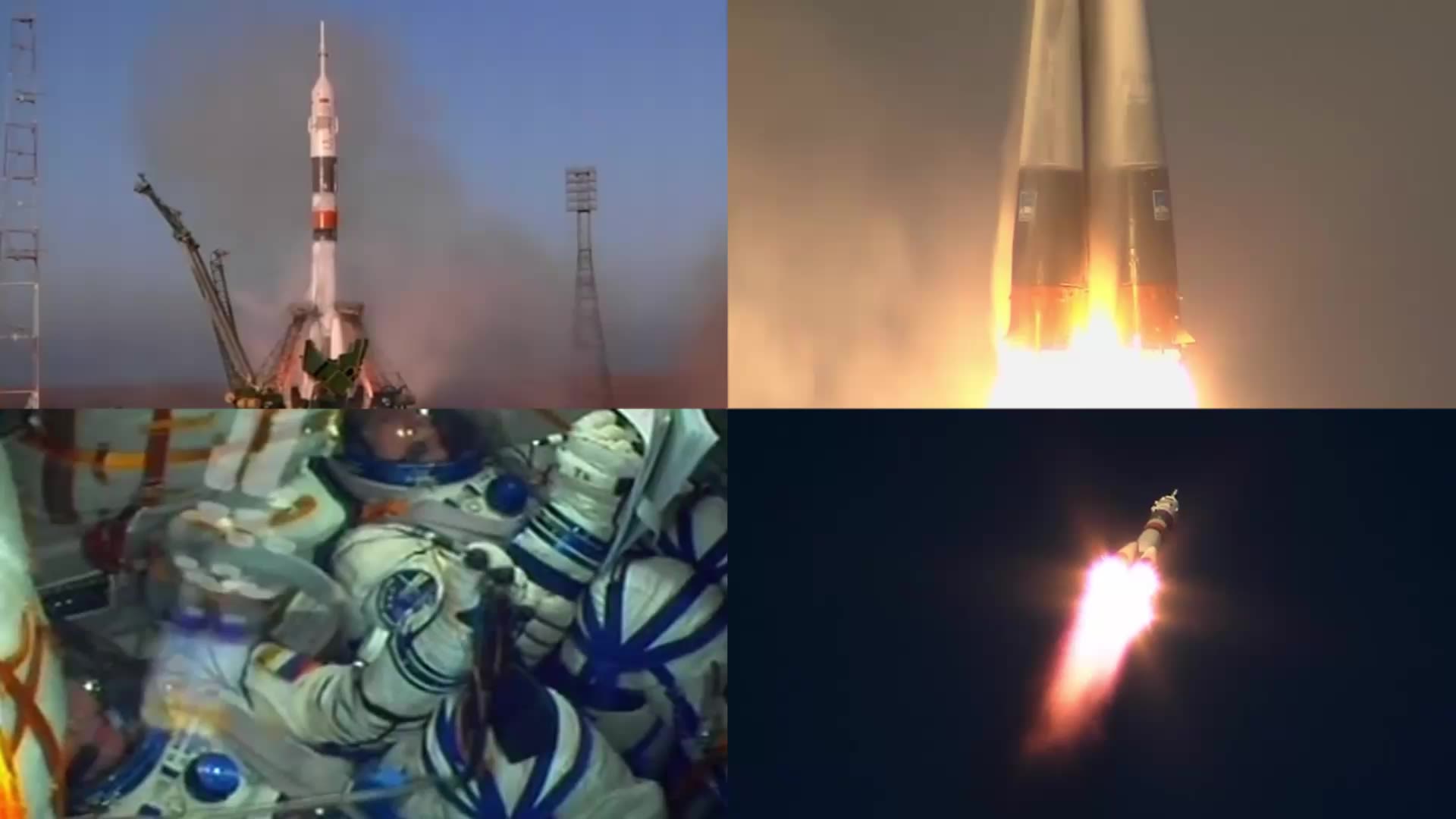
FLY ME
TO THE MOON

Ahead of his keynote at the ICAS Annual Conference in November, Tim Peake speaks to Lysanne Currie about the growth mindset, the role of space in the national economy and why the UK should be more like SpaceX

Tim Peake opens his autobiography, Limitless, with a heart-in-mouth story about his space flight on 15 December 2015 – and the moment his commander Yuri Malenchenko (“the calmest man I have ever met”) started trembling.
Malenchenko was one of the most experienced Russian cosmonauts in history, a veteran of five separate missions and 461 days in orbit. He was at the helm of the Soyuz TMA-19M capsule which took Peake to the International Space Station (ISS), but just 400 metres from docking, the capsule began to abort, something that had never happened before.
The procedure was that Malenchenko would move to manual control and fly in to the ISS by hand. The light had gone from day to night, so visibility was poor. There were no forward-facing windows and one of the screens malfunctioned. Several voices could be heard offering suggestions from mission control to try to stop the capsule from crashing into the ISS – the structure which had already cost more than $150bn and taken many years of multinational collaboration. It was, Peake says, “arguably the most advanced structure humanity has ever made”.
Had the capsule crashed into the ISS, it could have led to a rapid depressurisation – possibly survivable, but possibly not. Malenchenko’s experience proved to be the saviour – he ignored the babble of voices coming from Earth, “took his own reading of the situation” and backed away from the station and tried again.
This example of calm under extraordinary pressure had a profound effect on Peake, cementing his views on the growth mindset and the importance of expertise. “We have to be experts at what we do,” he says. “There is no substitute for that kind of intimate knowledge of what you’re doing – that goes for any sector.
“The more you can learn about your business, the more resilient you will be and the more you’ll understand the risks and when to take them. Malenchenko’s expertise saw him through.”
The Soyuz TMA-19M capsule that docked with Peake on the International Space Station
The Soyuz TMA-19M capsule that docked with Peake on the International Space Station
Time to fly
Peake wasn’t a space-obsessed child – born in 1972, he was just eight months old when Apollo 17 landed on the moon. Rather, the object of his fascination was the helicopter, inspired by the opening scene in For Your Eyes Only, in which Roger Moore’s Bond, with little more than an arched eyebrow, has to take control of a helicopter careering over London, piloted remotely by his eternal enemy Blofeld.
Growing up in West Sussex, Peake describes his childhood as “ordinary”; he was taken to air shows by his journalist dad, Features Editor at the Portsmouth News. Peake didn’t excel at school – his three A levels at “C, D and E weren’t grade-one prizes”, he concedes – but he got a flying scholarship from the RAF, giving him 30 hours of helicopter flying at Compton Abbas.
Following that, he did officer training at Sandhurst, going on to enjoy a 17-year career in the army, qualifying as a helicopter pilot after two years, then an instructor after a further four, before joining the European Space Agency in 2009.
He stepped down permanently as an astronaut in 2023, and is now focusing on his ambassadorial position for science and space. Passionate about the space sector, he wants to see it recognised for its innovation and contribution to economic growth – and for the UK to provide the right environment in which it can thrive.
The SpaceX factor
Elon Musk’s reputation may have taken a battering of late, but Peake is a fan of SpaceX and its entrepreneurial energy. “They’ve got 25 test flights planned this year, so it’s quite a programme,” he says. “They’ve had successes and they’ve had a couple of failures recently, which they need. The big hurdle that they really need to master now is tanking [refuelling] operations in orbit.”
But, he says, “SpaceX is a game-changer,” something he attributes to money. “They didn’t start out to be a company that built everything themselves, but as Musk was trying to contract out various parts, he realised they were not being manufactured to the standard he would like – and they were disposable, they weren’t being recovered. So they just started building everything in house.
“[Now], in Hawthorne, California, there’s a factory where, at one end, rocket engines are being 3D printed, and at the other end, the rocket is coming out fully assembled. It’s phenomenal.”
He believes the working methods of risk-averse space agencies are diametrically opposed to the Musk mindset. Nasa’s Artemis II is scheduled to set off to orbit the moon no later than April 2026, while Artemis III aims to land people the following year. Lockheed Martin is building the Orion spacecraft and Boeing is handling the avionics of the programme. “It has to work and it has to be safe,” says Peake. “The philosophy there is that it can’t fail. This is their second launch.
A SpaceX rocket launch
A SpaceX rocket launch
“Musk is on the 83rd launch of his rocket. He is happy to go fast and blow them up and make mistakes and learn, and by doing so, he inherently builds up a huge amount of trust and dependency in those systems and in that rocket. Ask any astronaut which would they prefer – to launch on the second attempt or the 84th attempt? I know what most would say.
“Musk’s way ends up being a very safe, tried and tested way of doing things, but it is a completely different attitude. In the UK, we have companies that are working both ways – we do have some big old legacy primes, but we also have a huge number of really smart, innovative, exciting companies who are at the cutting edge of what they do.”
“What this government wants is growth. And space is probably the most rapidly growing sector we have globally at the moment”
Peake in his spacesuit
Peake in his spacesuit
Left–right: Peake; Malenchenko; Tim Kopra of Nasa
Left–right: Peake; Malenchenko; Tim Kopra of Nasa
From top: Malenchenko, Kopra and Peake wave farewell prior to boarding the Soyuz TMA-19M rocket for launch
From top: Malenchenko, Kopra and Peake wave farewell prior to boarding the Soyuz TMA-19M rocket for launch
Peake testing his spacesuit prior to launch
Peake testing his spacesuit prior to launch
Blast-off
Blast-off
Space inspiration
Peake is keen for the UK to become more like the US and wants the government to recognise the dynamic companies “where we can have global leadership and where we have strength”.
He feels strongly that the UK is in danger of missing out on opportunities. In April, he addressed the House of Lords Space Committee on the importance of the space sector and the three pillars driving it: science, inspiration and exploration.
He says space can inspire children to take up subjects such as maths and engineering, while exploration helps us understand our place in the universe. And as for science: “That will directly improve our life on Earth in areas such as healthcare, energy and climate resilience, manufacturing, new technologies, food security – most of this will lead to economic growth.”
Peake feels this was a crucial time to talk to the Lords: “It’s an incredibly exciting moment in the space economy but we do need clarity as to how the UK moves forward.” He outlined to the committee how huge the potential was, that it is cheaper to go to space than it was a decade ago and that opens up opportunities, “some which are ready right now in terms of orbit manufacturing, and some which are longer term, such as space-based solar power and the potential to be printing human organs from space and delivering them back to patients on Earth”. (For more on the economic potential of the space sector, read our 2023 Special Report.)
But, he warned, if the UK doesn’t get involved in the research and offer an environment in which innovative companies can thrive, we will fall behind and risk missing out on the opportunities of the future.
Peake gives the example of Cardiff-based Space Forge which, in its own words, uses “space-derived crystal seeds to grow ultra-high quality semi-conductor substrates on Earth”.
“They can manufacture semi-conductors with 100 times greater efficiency than anything we can produce on Earth,” he says. “It took them two years to get MoD [Ministry of Defence] funding, and six months to get Nasa funding, which was 50 times the amount of the MoD. If you’re Space Forge, where are you going to look to locate your business for its next stage of growth? It ain’t in the UK.”
He wants the UK to adjust its thinking to enable “those companies to be able to develop and grow as fast as they can. Investment will ultimately lead to better quality of life, better communications, better defence and security. What this government wants – like every government – is growth. And space is probably the most rapidly growing sector we have globally at the moment.”
“Building confidence in your team and yourself, building resilience in the decision-making cycle and generating options. Once you have that, taking greater risk becomes less scary, it becomes part of your normal operating procedure”
Apples and oranges…
Apples and oranges…
A birthday message for the Queen
A birthday message for the Queen
Testing the breathing equipment
Testing the breathing equipment
“Ladies and gentlemen, we are floating in space…”
“Ladies and gentlemen, we are floating in space…”
Going for growth
Peake believes that government, like individuals, should cultivate a growth mindset. But how to do so in the present disrupted climate when each day can bring another shock (hello tariffs!). He reiterates that agility is key, referring back to his time as a test pilot, and the job’s approach to problem solving, as the start of his own growth journey. Above all, he says, it’s important to know what you want to achieve.
“Think through the routes of getting to what you want to achieve. By thinking those through, you can analyse what you’re afraid of and work out what you can change. It could be regulations, equipment, training – you can think about all kinds of things to mitigate the risks along the way, and that way generate multiple different options in order to achieve that one single goal.
“If we try to look at the many ways of doing things, and we can equip our people to cope with multiple different situations, we can still achieve mission success, even with a number of different failures.”
Peake also underlines the importance of accepting that there will be things outside our control: “Curve balls will happen and you can’t anticipate them – that’s impossible. You have to be resilient.” And resilience, he says, rests on four key pillars: “Building confidence in your team, in yourself, building resilience in the decision-making cycle and generating options. Once you have all of that, taking greater risk becomes less scary, it becomes part of your normal operating procedure.
“We all need the flexibility to adapt. At what point do we go from a ‘fail fast’ mentality to the ‘we now need to get people home safe’ mentality? That agility of mindset is really important and we do that well in the space industry. We can be quite slow and introspective in our preparation, and then when we sit on top of a rocket, we have a switch that flicks, because now you’re into an operational environment. It’s just operational focus, clarity, thought, it’s fast decision making, and it’s a very different mentality from when you’re in the training halls back in Houston.”
It’s impossible for the rest of us to even begin to understand what life in space is like; there are videos, of course – such as the one above of Peake playing water ping-pong – which give a sense of the cramped interiors. But what was it like for Peake spending 185 days looking back at our planet from up high?
“It’s really a tranquil experience, floating around despite half your brain saying this is absolutely barking mad”
The Soyuz TMA-19M capsule is parachuted back to Earth
The Soyuz TMA-19M capsule is parachuted back to Earth
The capsule back on solid ground
The capsule back on solid ground
A hero’s welcome for Peake…
A hero’s welcome for Peake…
…as his brow is mopped…
…as his brow is mopped…
He talks about the time he was early to repair a solar panel. “It was the furthest edge of the space station, so we built in a bit of a time buffer in case we had problems on the way. Walking outside the space station with all our equipment is more like climbing and can be tricky, so it’s best to get there in good time.
“We couldn’t get to work straight away, because it was sunlight which was hitting the solar panel, so there was live electricity flowing around. We had to do this task in darkness, where there was no risk of an electric shock. Rather than getting on with another task and then getting into problems and not being able to achieve our primary aim, Houston told us to wait as we had only 10 minutes until sundown. We just hung out in space for 10 minutes – it was magical.
“You’re very aware you’re in an incredibly hostile situation, but it’s also very peaceful. It’s not a crazy adrenaline rush – it’s really a tranquil experience, floating around despite half your brain saying this is absolutely barking mad. It was beautiful and surreal to look back down on the cradle of all life as we know it. Seeing Earth from that kind of vantage point gives you this different perspective of how incredible the planet is and how it’s up to us all to look after it.”
Tim Peake is speaking at the ICAS Annual Conference on 5 November. Find out more and book your place
ADVERTISEMENT


